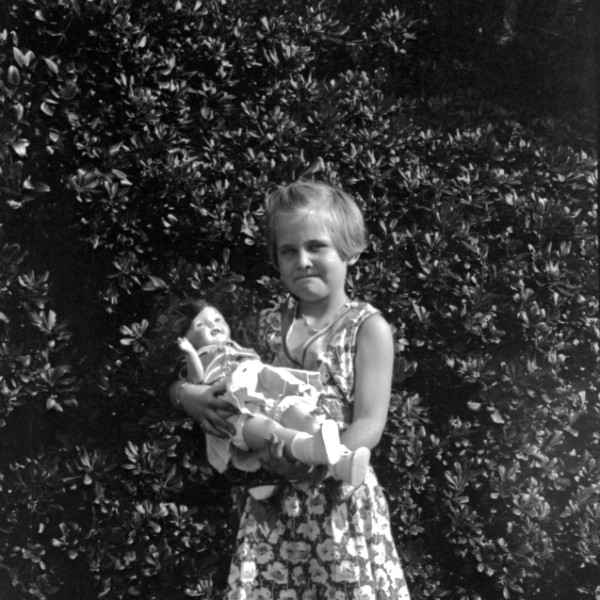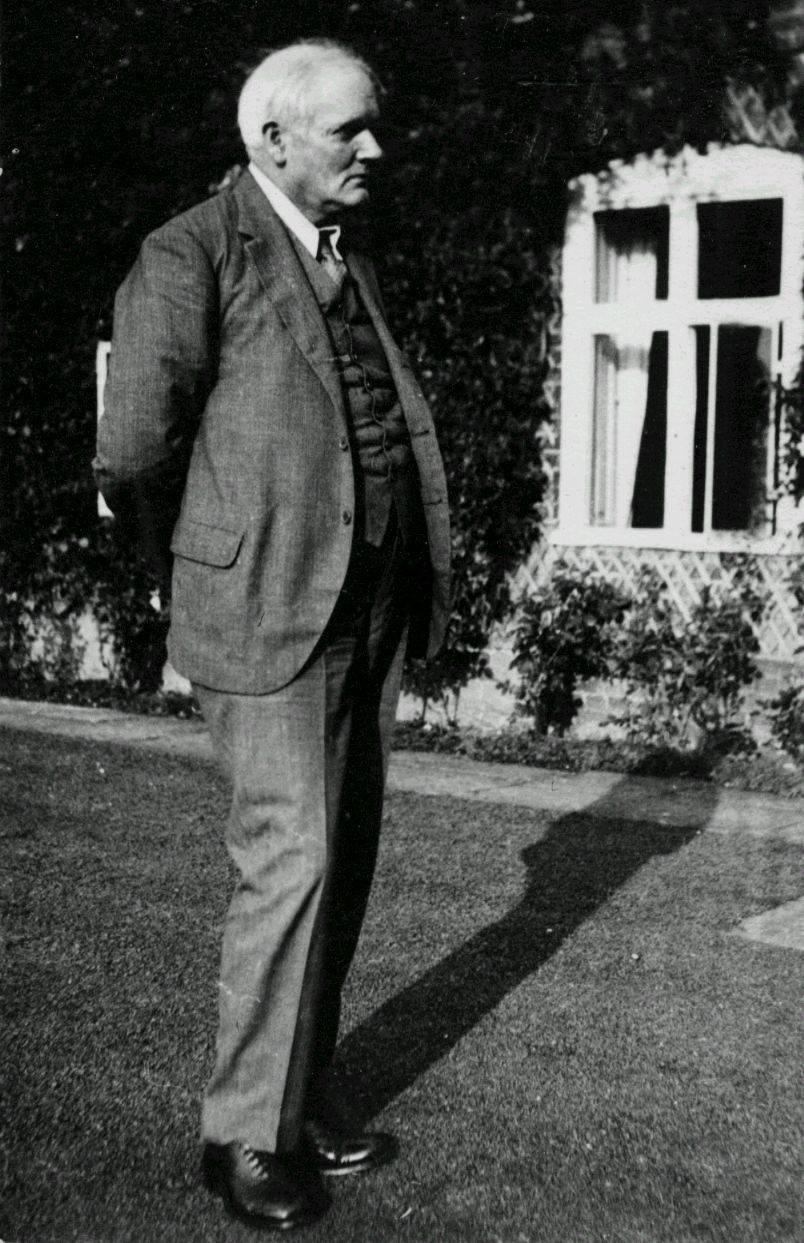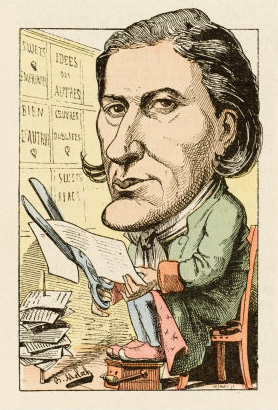|
Joseph Kerman
Joseph Wilfred Kerman (3 April 1924 – 17 March 2014) was an American musicologist and music critic. Among the leading musicologists of his generation, his 1985 book ''Contemplating Music: Challenges to Musicology'' (published in the UK as ''Musicology'') was described by Philip Brett in ''The Grove Dictionary of Music and Musicians'' as "a defining moment in the field."Brett He was Professor Emeritus of Musicology at the University of California, Berkeley. Life and career Kerman, the son of an American journalist, William Zukerman, was born in London and educated at University College School there.Hewett He then attended New York University where he received his BA in 1943 and Princeton University where he received his PhD in 1950. While at Princeton he studied under Oliver Strunk, Randall Thompson and Carl Weinrich and wrote his doctoral thesis on the Elizabethan madrigal. When young, he used Kerman as a pen-name, and then adopted it officially. From 1949 to 1951 he taught a ... [...More Info...] [...Related Items...] OR: [Wikipedia] [Google] [Baidu] |
Musicologist
Musicology (from Greek μουσική ''mousikē'' 'music' and -λογια ''-logia'', 'domain of study') is the scholarly analysis and research-based study of music. Musicology departments traditionally belong to the humanities, although some music research is scientific in focus (psychological, sociological, acoustical, neurological, computational). Some geographers and anthropologists have an interest in musicology so the social sciences also have an academic interest. A scholar who participates in musical research is a musicologist. Musicology traditionally is divided in three main branches: historical musicology, systematic musicology and ethnomusicology. Historical musicologists mostly study the history of the western classical music tradition, though the study of music history need not be limited to that. Ethnomusicologists draw from anthropology (particularly field research) to understand how and why people make music. Systematic musicology includes music theory, aesthe ... [...More Info...] [...Related Items...] OR: [Wikipedia] [Google] [Baidu] |
Libretto
A libretto (Italian for "booklet") is the text used in, or intended for, an extended musical work such as an opera, operetta, masque, oratorio, cantata or Musical theatre, musical. The term ''libretto'' is also sometimes used to refer to the text of major liturgical works, such as the Mass (liturgy), Mass, requiem and sacred cantata, or the story line of a ballet. ''Libretto'' (; plural ''libretti'' ), from Italian, is the diminutive of the word ''wiktionary:libro#Italian, libro'' ("book"). Sometimes other-language equivalents are used for libretti in that language, ''livret'' for French works, ''Textbuch'' for German and ''libreto'' for Spanish. A libretto is distinct from a synopsis or scenario of the plot, in that the libretto contains all the words and stage directions, while a synopsis summarizes the plot. Some ballet historians also use the word ''libretto'' to refer to the 15 to 40 page books which were on sale to 19th century ballet audiences in Paris and contained a ve ... [...More Info...] [...Related Items...] OR: [Wikipedia] [Google] [Baidu] |
Hermeneutics
Hermeneutics () is the theory and methodology of interpretation, especially the interpretation of biblical texts, wisdom literature, and philosophical texts. Hermeneutics is more than interpretative principles or methods used when immediate comprehension fails and includes the art of understanding and communication. Modern hermeneutics includes both verbal and non-verbal communication''The Routledge Companion to Philosophy in Organization Studies'', Routledge, 2015, p. 113.Joann McNamara, ''From Dance to Text and Back to Dance: A Hermeneutics of Dance Interpretive Discourse'', PhD thesis, Texas Woman's University, 1994. as well as semiotics, presuppositions, and pre-understandings. Hermeneutics has been broadly applied in the humanities, especially in law, history and theology. Hermeneutics was initially applied to the interpretation, or exegesis, of scripture, and has been later broadened to questions of general interpretation. p. 2 The terms ''hermeneutics'' and ''exegesi ... [...More Info...] [...Related Items...] OR: [Wikipedia] [Google] [Baidu] |
Feminist Theory
Feminist theory is the extension of feminism into theoretical, fictional, or philosophical discourse. It aims to understand the nature of gender inequality. It examines women's and men's social roles, experiences, interests, chores, and feminist politics in a variety of fields, such as anthropology and sociology, communication, media studies, psychoanalysis,Chodorow, Nancy J., Feminism and Psychoanalytic Theory' (Yale University Press: 1989, 1991) political theory, home economics, literature, education, and philosophy. Feminist theory often focuses on analyzing gender inequality. Themes often explored in feminist theory include discrimination, objectification (especially sexual objectification), oppression, patriarchy,Gilligan, Carol, 'In a Different Voice: Women's Conceptions of Self and Morality' in ''Harvard Educational Review'' (1977)Lerman, Hannah, ''Feminist Ethics in Psychotherapy'' (Springer Publishing Company, 1990) stereotyping, art history and contemporary art, a ... [...More Info...] [...Related Items...] OR: [Wikipedia] [Google] [Baidu] |
Positivism
Positivism is an empiricist philosophical theory that holds that all genuine knowledge is either true by definition or positive—meaning ''a posteriori'' facts derived by reason and logic from sensory experience.John J. Macionis, Linda M. Gerber, ''Sociology'', Seventh Canadian Edition, Pearson Canada Other ways of knowing, such as theology, metaphysics, intuition, or introspection, are rejected or considered meaningless. Although the positivist approach has been a recurrent theme in the history of western thought, modern positivism was first articulated in the early 19th century by Auguste Comte.. His school of sociological positivism holds that society, like the physical world, operates according to general laws. After Comte, positivist schools arose in logic, psychology, economics, historiography, and other fields of thought. Generally, positivists attempted to introduce scientific methods to their respective fields. Since the turn of the 20th century, positivism has de ... [...More Info...] [...Related Items...] OR: [Wikipedia] [Google] [Baidu] |
Gary Tomlinson
Gary Alfred Tomlinson (born December 4, 1951) is an American musicologist and the John Hay Whitney Professor of Music and Humanities at Yale University. He was formerly the Annenberg Professor in the Humanities at the University of Pennsylvania. He graduated from the University of California, Berkeley, with a Ph.D., in 1979 with thesis titled ''Rinuccini, Peri, Monteverdi, and the humanist heritage of opera''. Tomlinson became Director of the Whitney Humanities Center, Yale University, in 2012. Tomlinson's research has ranged across diverse fields, including the history of opera, early-modern European musical thought and practice, the musical cultures of indigenous American societies, and the philosophy of history and critical theory. His latest research concerns music, culture, and human evolution. Here he is concerned to reshape the relations of evolutionary theory, archaeology, and humanistic theory so as to offer a novel model of the emergence of human modernity. The chief in ... [...More Info...] [...Related Items...] OR: [Wikipedia] [Google] [Baidu] |
Donald Francis Tovey
Sir Donald Francis Tovey (17 July 187510 July 1940) was a British musical analyst, musicologist, writer on music, composer, conductor and pianist. He had been best known for his '' Essays in Musical Analysis'' and his editions of works by Bach and Beethoven, but since the 1990s his compositions (relatively small in number but substantial in musical content) have been recorded and performed with increasing frequency. The recordings have mostly been well received by reviewers. Life He was born at Eton, Berkshire, the son of Duncan Crookes Tovey, an assistant master at Eton College, and his wife, Mary Fison. As a child Tovey was privately educated exclusively by Sophie Weisse. She was impressed by his musical gifts evident at an early age and took it upon herself to nurture him. Through her network of associates he was introduced to composers, performers and music critics. These included Walter Parratt, James Higgs and (from the age of 14) Hubert Parry for composition. Also in So ... [...More Info...] [...Related Items...] OR: [Wikipedia] [Google] [Baidu] |
String Quartet
The term string quartet can refer to either a type of musical composition or a group of four people who play them. Many composers from the mid-18th century onwards wrote string quartets. The associated musical ensemble consists of two violinists, a violist, and a cellist. The string quartet was developed into its present form by composers such as Franz Xaver Richter, and Joseph Haydn, whose works in the 1750s established the ensemble as a group of four more-or-less equal partners. Since Haydn the string quartet has been considered a prestigious form; writing for four instruments with broadly similar characteristics both constrains and tests a composer. String quartet composition flourished in the Classical era, and Wolfgang Amadeus Mozart, Ludwig van Beethoven and Franz Schubert each wrote a number of them. Many Romantic and early-twentieth-century composers composed string quartets, including Felix Mendelssohn, Robert Schumann, Johannes Brahms, Antonín Dvořák, Leoš Jan� ... [...More Info...] [...Related Items...] OR: [Wikipedia] [Google] [Baidu] |
Beethoven
Ludwig van Beethoven (baptised 17 December 177026 March 1827) was a German composer and pianist. Beethoven remains one of the most admired composers in the history of Western music; his works rank amongst the most performed of the classical music repertoire and span the Transition from Classical to Romantic music, transition from the Classical period (music), Classical period to the Romantic music, Romantic era in classical music. His career has conventionally been divided into early, middle, and late periods. His early period, during which he forged his craft, is typically considered to have lasted until 1802. From 1802 to around 1812, his middle period showed an individual development from the styles of Joseph Haydn and Wolfgang Amadeus Mozart, and is sometimes characterized as heroic. During this time, he began to grow increasingly Hearing loss, deaf. In his late period, from 1812 to 1827, he extended his innovations in musical form and expression. Beethoven was born in Bo ... [...More Info...] [...Related Items...] OR: [Wikipedia] [Google] [Baidu] |
William Byrd
William Byrd (; 4 July 1623) was an English composer of late Renaissance music. Considered among the greatest composers of the Renaissance, he had a profound influence on composers both from his native England and those on the continent. He is often coupled with John Dunstaple and Henry Purcell as England's most important early music composers. He wrote in many of the forms current in England at the time, including various types of sacred and secular polyphony, keyboard (the so-called Virginalist school), and consort music. Although he produced sacred music for Anglican services, sometime during the 1570s he became a Roman Catholic and wrote Catholic sacred music later in his life. Life Early life Birth and background Richard Byrd of Ingatestone, Essex was the grandfather of Thomas Byrd, who probably moved to London in the 15th century. Thereafter succeeding generations of the Byrd family are described as gentlemen. William Byrd was probably born in London, the third s ... [...More Info...] [...Related Items...] OR: [Wikipedia] [Google] [Baidu] |
La Tosca
''La Tosca'' is a five-Act (drama), act drama by the Nineteenth-century theatre, 19th-century Theatre of France, French playwright Victorien Sardou. It was first performed on 24 November 1887 at the Théâtre de la Porte Saint-Martin in Paris, with Sarah Bernhardt in the title role. Despite negative reviews from the Paris critics at the opening night, it became one of Sardou's most successful plays and was toured by Bernhardt throughout the world in the years following its premiere. The play itself had dropped from the standard theatrical repertoire by the mid-1920s, but its operatic adaptation, Giacomo Puccini's ''Tosca'', has achieved enduring popularity. There have been several other adaptations of the play including two for the Japanese theatre and an English Victorian burlesque, burlesque, ''Tra-La-La Tosca'' (all of which premiered in the 1890s) as well as several film versions. ''La Tosca'' is set in Rome on 17 June 1800 following the French victory in the Battle of Mareng ... [...More Info...] [...Related Items...] OR: [Wikipedia] [Google] [Baidu] |








.jpg)
